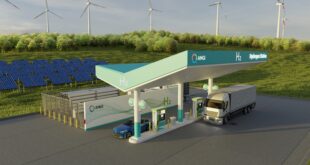With the crisis in oil and natural gas prices, the continued violence in the Middle East, and the environmental concerns brought front and center by hurricanes Katrina and Rita, alternative fuels have managed to become a topic of conversation in the mainstream media. Unfortunately, not all proposals make sense environmentally. The energy crisis has given the nuclear industry a major boost, despite problems with nuclear waste and vulnerability to terrorist threats, and Republicans in Congress are pushing even harder for drilling on the ecologically fragile Alaskan slopes. Meanwhile the oil companies, in an attempt to keep a stranglehold on the production of energy, are the ones getting billions of dollars in support for developing new technologies, including hydrogen fuel cell and ethanol development. Lets face it: If Standard Oil or Exxon could figure out a way to put a meter on the sun, wed have solar energy in abundance tomorrow. Meanwhile, we really need to challenge this notion of having multinational, multi-billion-dollar companies the ones responsible for doling out our energy needs. Bringing energy production back to our shores from the Middle East, Venezuela, and other political hotspots is only the beginning of a solution. We need every region in this country, and every community in each region, to make energy production a priority. In the Midwest, that can mean a combination of wind, solar, and ethanol or biodiesel production. Farmers particularly vulnerable to a rise in fuel to run their farm equipment could have their own small ethanol or biodiesel plants on-site, growing the raw material and then producing the fuel they need to operate their tractors, combines, and other machines. The Southeast could adopt solar technology on a house-by-house basis; just retrofitting every mobile home in the Sun Belt with solar air-conditioning capability could save billions in fuel demands every year. In the Northeast, a combination of solar energy and wind power in the summer and wind and biodiesel use in the winter, with family farms growing much of the raw material for the biodiesel, could cut the regions dependency on heating oil, propane, and natural gas during the coldest months of the year. And all over the country, using sustainable farming and foresting methods to product corn and wood pellet products would provide still another efficient, low-emissions fuel. Even hydrogen technology makes more sense produced on a local basis as part of a comprehensive energy plan. Hydrogen is produced by splitting water molecules into its component hydrogen and oxygen atoms; the hydrogen is then burned, producing more water. Using up massive amounts of water in centralized plants would put a tremendous demand on a localitys water supply, and then would affect the environment in ways not now known as the fuel is burned and the water redistributed around the country. Locally, hydrogen could be produced using solar energy on a building by building basis, and then could be stored and used to fuel cars or for household energy use. The water produced by burning the hydrogen could also conceivably be collected and reused, limiting the demand on the water supply. Thinking locally in terms of energy production and use could serve not only to break our dependence on foreign oil but could eventually free us from relying on corporate entities for our energy needs. That is true energy independence.
Aldene Fredenburg
Aldene Fredenburg is a freelance writer living in southwestern New Hampshire. She has written numerous articles for local and regional newspapers and for a number of Internet websites, including Tips and Topics. She expresses her opinions periodically on her blog, http://beyondagendas.blogspot.com.
Hydrogen Fuel
 Alternative Energy HQ solar power for homes, wind energy, and bio fuel issues
Alternative Energy HQ solar power for homes, wind energy, and bio fuel issues





